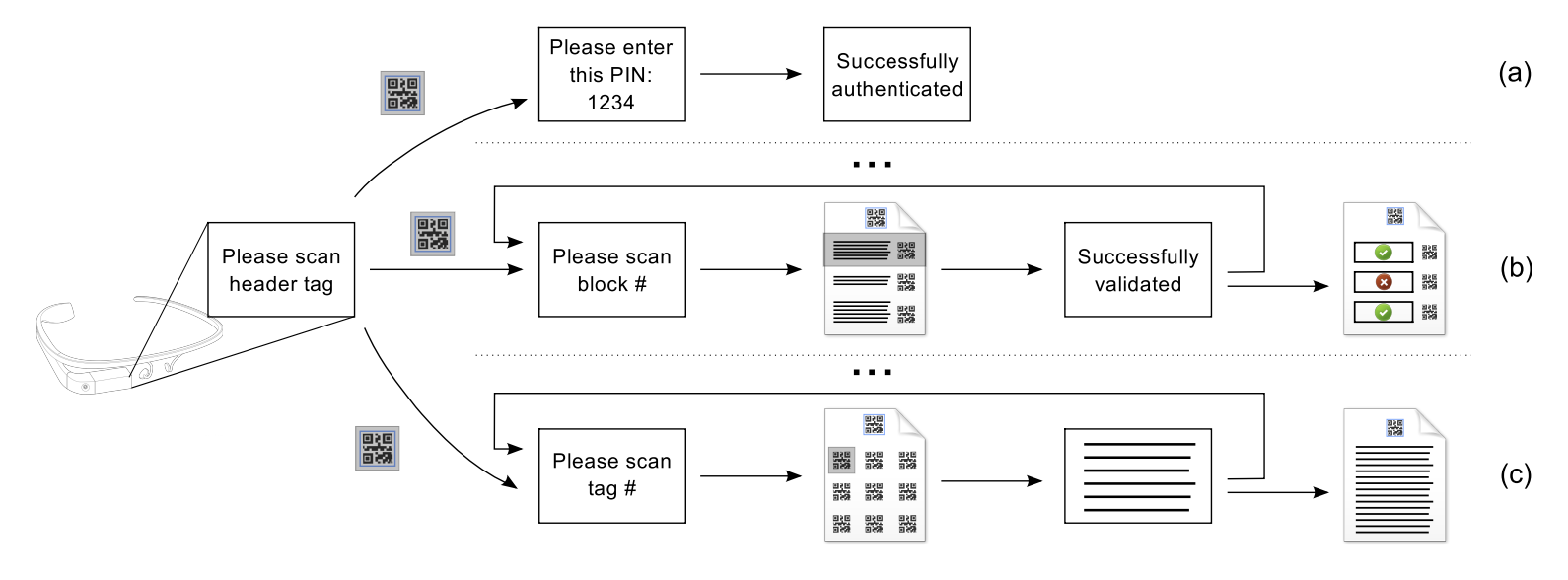Ubic: Bridging the gap between digital cryptography and the physical world
Mark Simkin, Andreas Bulling, Mario Fritz, Dominique Schröder
arXiv:1403.1343, pp. 1–20, 2014.

Abstract
Advances in computing technology increasingly blur the boundary between the digital domain and the physical world. Although the research community has developed a large number of cryptographic primitives and has demonstrated their usability in all-digital communication, many of them have not yet made their way into the real world due to usability aspects. We aim to make another step towards a tighter integration of digital cryptography into real world interactions. We describe Ubic, a framework that allows users to bridge the gap between digital cryptography and the physical world. Ubic relies on head-mounted displays, like Google Glass, resource-friendly computer vision techniques as well as mathematically sound cryptographic primitives to provide users with better security and privacy guarantees. The framework covers key cryptographic primitives, such as secure identification, document verification using a novel secure physical document format, as well as content hiding. To make a contribution of practical value, we focused on making Ubic as simple, easily deployable, and user friendly as possible.Links
Paper: simkin14_arxiv.pdf
Paper Access: https://arxiv.org/abs/1403.1343
BibTeX
@techreport{simkin14_arxiv,
author = {Simkin, Mark and Bulling, Andreas and Fritz, Mario and Schr{\"{o}}der, Dominique},
title = {Ubic: Bridging the gap between digital cryptography and the physical world},
year = {2014},
pages = {1--20},
url = {https://arxiv.org/abs/1403.1343}
}

